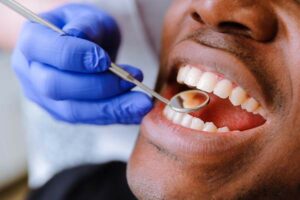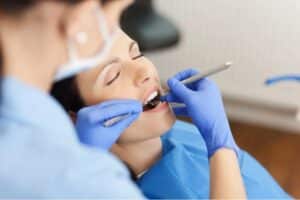Tooth sensitivity can really affect your life. If you find yourself avoiding hot or cold beverages because the sharp, electric pain they cause is unbearable, then it might be time to seek help. Tooth sensitivity can get so severe than even a gasp of air can be painful. Sweet, sour, or hard foods can also aggravate the situation. Tooth sensitivity indicates there is a problem with the nerves of one or several of your teeth. If you feel most of your teeth are sensitive, do not panic. Since nerve endings are all connected, the problem with only one tooth can also irradiate on other parts of your mouth.
Everything is on the enamel
Each tooth has three basic layers: the enamel, the dentin, and the pulp chamber. The enamel is the hardest and outermost layer of a tooth. It acts as a protective layer that helps teeth resist any exterior condition. Tooth sensitivity is related to some form of enamel damage. You feel pain when there is access through the enamel into the dentin or the pulp chamber, which contains all nerve endings. The first step to treat sensitivity is to identify its cause. Here are some tips you can try to help you identify the problem.
Do not brush harshly
An incorrect brushing technique can damage the enamel. Aggressive side to side brushing at the gum line can wear away the enamel faster. Instead, brush your teeth at a 45 degree angle with a soft-bristled tooth brush.
Avoid acidic foods and drinks
Foods with a high acidic content, carbohydrates, and sugars propitiate bacteria in your mouth. These cause many problems over time. Bad breath, stains, and cavities are a result of inadequate cleaning. Remember that tooth decay that destroys the enamel and gets into the dentin will cause tooth sensitivity and possibly infection. If you do eat these foods, wait thirty minutes before you brush your teeth.
Use a nightguard
If you clench or grind your teeth at night your tooth enamel will suffer considerable damage. Fractures, chips, and wear are the most common signs of bruxism and they can cause acute sensitivity. Address any problems with stress management, and wear a nightguard to protect your teeth at night.
Take a break from bleaching
Bleaching techniques that include peroxide and laser generally cause tooth sensitivity because they open the pores in the enamel and let light through. Abrasive agents also wear away the outermost layers of the enamel in order to expose brighter lower layers. It is common to have tooth sensitivity during these treatments but it is also common to have some sensitivity afterwards. If it becomes unbearable, it is best to interrupt the treatment. Bleaching with abrasive elements is never advised due to the irreversible effects on the enamel.
Identify receding gums
It is normal to have gums gradually recede if you are over fifty years old. However, advanced or rapid recession will cause your tooth roots to get exposed. These are not covered by enamel and are therefore more prone to cause sensitivity. Once it reaches this stage, it is best to visit your dentist as it may be indicative of gum disease. This is a progressive condition caused by the accumulation of plaque and tartar around your gumline and that can end in the extraction of teeth.
Look out for a cracked tooth or filling
Any fracture that reaches the nerve will cause severe pain. Also, any filtration in a large filling can cause acute sensitivity. Consult your dentist in order to determine the best way to treat your tooth.
Most damages to the tooth enamel can be easily resolved with a filling or a crown if treated early. This is something your dentist will look out for during regular checkups. Tooth sensitivity should get better over the course of a couple days. If it does not, do not try to live will chronic tooth sensitivity. Ignoring this symptom can make the problem worse. After an evaluation, if the case is severe, your dentist might recommend a root canal treatment, in which a specialist will extirpate the nerve and fill the canal with a special material. At the Costa Rica Dental Team we have a team of specialists who will help you solve any dental problem that is causing you pain. Contact us now for an appointment.




